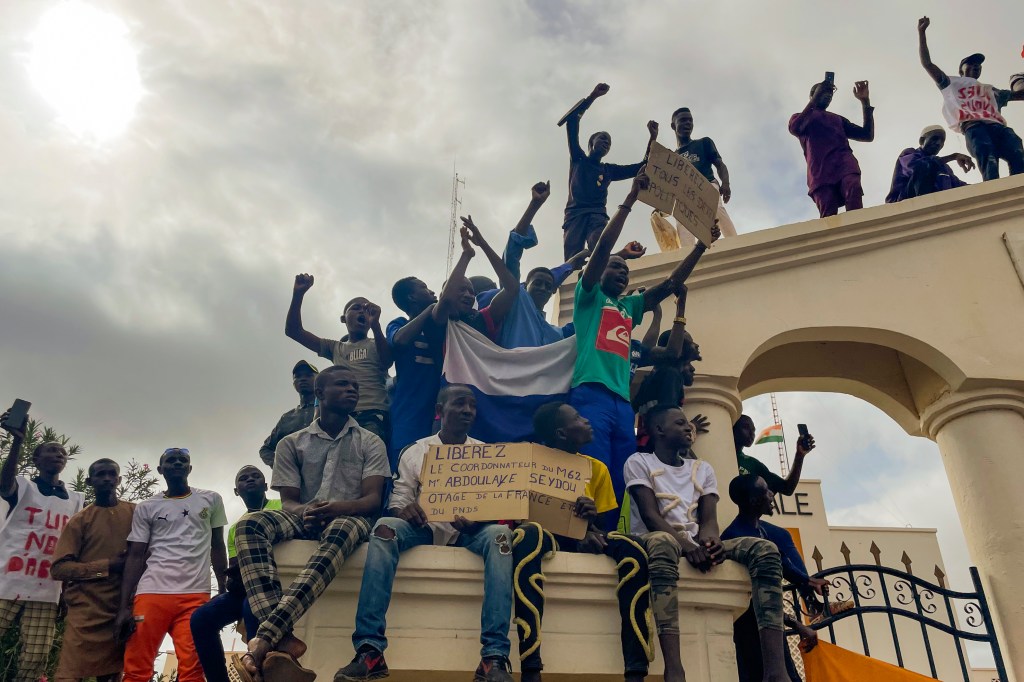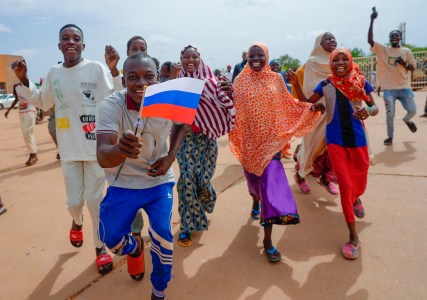A newly formed alliance between coup-hit countries in Africa’s Sahel is seen as tool for legitimacy
Niger, Mali, and Burkina Faso leaders hold talks, pledge security, political collaborations
ABUJA, Nigeria (AP) — Three West African nations led by military juntas met this week to strengthen a newly formed alliance described by some analysts on Friday as an attempt to legitimize their military governments amid coup-related sanctions and strained relations with neighbors.
In his first foreign trip since the July coup that brought him into power, Niger’s junta leader, Gen. Abdourahmane Tchiani held separate meetings Thursday with his Mali and Burkina Faso counterparts.

During their meetings, the leaders pledged security and political collaborations under the Alliance of Sahel States (AES), a partnership the three countries announced in September as a measure to help fight the extremist violence they each struggle with and across the Sahel, the vast arid expanse south of the Sahara Desert.
The alliance provides a “path of sovereignty” for the countries and for their citizens, Gen. Tchiani told reporters after his meeting with Malian leader Col. Assimi Goita. “Through this alliance, the peoples of the Sahel affirm that … nothing will prevent them from the objective of making this area of the Sahel, not an area of insecurity, but an area of prosperity,” Tchiani said.
In reality, though, the partnership “is in part an effort to entrench and legitimize (their) military governments” more than to tackle the violent extremism which they have limited capacity to fight, said Nate Allen, an associate professor at the Africa Center for Strategic Studies.
The violence across the Sahel has contributed to a recent surge of coups in the region and militaries that claimed they took over power to help tackle their country’s security challenges have struggled to do so.
On Thursday, Gen. Tchiani partly blamed the violence on foreign powers, repeating claims his government has often made against France — which had been influential in the three countries before being forced out after their militaries took over — and against West Africa’s regional bloc of ECOWAS, which has heavily sanctioned Niger as a measure to reverse the surge of coups in the region.
The new partnership also offers the military governments of Mali, Burkina Faso and Niger an opportunity “to say, ‘we are not internationally isolated and we actually have partners that share our ideology and philosophy’,” said James Barnett, a researcher specializing in West Africa at the U.S.-based Hudson Institute.
Some analysts, however, believe that by pooling their resources together, those countries are able to reduce individual reliance on foreign countries and tackle the security challenge with one front.
“The merit of this new alliance, despite its limited means and capabilities, lies in its initiation by concerned members,” said Bedr Issa, an independent analyst who researches the conflict in the Sahel. “Its long-term success depends both on the resources that member countries can mobilize and the support that Africans and the broader international community could provide,” he added.
In the Malian capital of Bamako, 35-year-old Aissata Sanogo expressed hope that such a partnership could be useful.
“It’s important that we take charge of our own security,” said Sanogo. “That’s what I’m expecting from this alliance.”
Never miss a beat: Get our daily stories straight to your inbox with theGrio’s newsletter.


